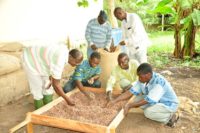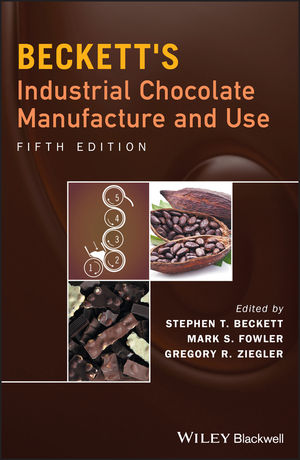
Cargill has released its first global progress report on its activities to support cocoa farmers, communities and the development of a sustainable global cocoa supply chain.
The report, A thriving cocoa sector for generations to come, highlights the progress the company has made since its work began over a decade ago as well as the Cargill Cocoa Promise that was launched in 2012 to align its efforts.
"We believe educated, empowered and successful farmers are essential to meeting the challenges facing the cocoa and chocolate sector,” says Jos de Loor, president of Cargill's cocoa and chocolate business. “This report shows how we are making a difference but also highlights the progress we still need to make."
Thus far, the Cargill Cocoa Promise has reinforced the company's global commitment to improving the livelihoods of farmers, their families and their communities, and to securing a long-term, sustainable supply of cocoa.
In the future, the cocoa processor hopes to create a transparent global supply chain, which would support better incomes for farmers and a sustainable supply of cocoa and chocolate products.
Since being established, the global program has been taking a local approach by using Cargill's extensive on-the-ground sourcing network to strengthen farmer organizations and work with communities, governments and NGOs to understand local issues and make tangible, long-term differences.
The Cocoa Promise is addressing key challenges in the sector, including the need to increase yields and incomes for farmers; improve access to training, infrastructure and finance; improve access to education and healthcare in communities; and regenerate farmland.
The report also highlights some of Cargill’s major results and achievements to date, including:
- Farmer training: More than 115,000 farmers have been trained in good agricultural practices in Côte d'Ivoire, Ghana, Cameroon, Indonesia, Brazil and Vietnam.
- Field Schools: 2,550 Farmer Field Schools have been established globally to provide training and knowledge sharing locally.
- Certification: 77,000 farmers and more than 342,201 hectares have been certified through farmer cooperatives and organizations
- An Academy: The establishment of the Coop Academy in Côte d'Ivoire — a unique, industry-first program that provides cooperative leaders with knowledge and skills to grow their businesses more successfully.
- Certification premiums: $25 million of certification premiums have been paid to farmer cooperatives — 50 percent of which have directly benefited farmers. The remainder has been invested by farmer organizations in local communities.
- Seedlings: 25.3 million seedlings have been distributed to support growth in cocoa production, particularly in Brazil.
- Education access: Access to education has been improved for more than 34,000 children in cocoa communities through school building activities, training teachers and providing books.
“The demand for cocoa is rising each year and consumers are increasingly conscious of where their food comes from and how it is produced,” De Loor says. “This means collaborating more closely with our customers, governments and partners to understand the challenges facing smallholders and measuring the real impacts of activities to ensure we continue to make a bigger difference."










